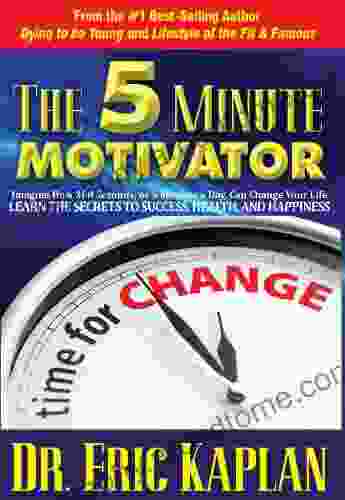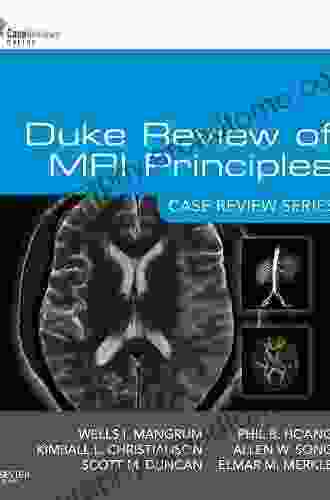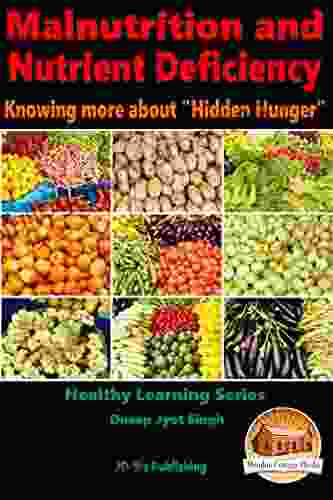Unveiling the Silent Epidemic: Malnutrition and Nutrient Deficiency - Unlocking the Secrets of Hidden Hunger

Malnutrition, often referred to as hidden hunger, is a silent epidemic that affects millions worldwide. Despite advancements in food production and distribution, nutrient deficiencies persist due to poverty, poor dietary habits, and limited access to nutritious foods. This article aims to shed light on the causes, consequences, and effective strategies to combat malnutrition and nutrient deficiency, empowering individuals to make informed choices for their health.
Understanding Malnutrition and Nutrient Deficiency
Malnutrition refers to a condition where individuals do not receive the necessary nutrients to maintain optimal health and well-being. It can manifest in various forms, including:
5 out of 5
| Language | : | English |
| File size | : | 4368 KB |
| Text-to-Speech | : | Enabled |
| Screen Reader | : | Supported |
| Enhanced typesetting | : | Enabled |
| Word Wise | : | Enabled |
| Print length | : | 48 pages |
| Lending | : | Enabled |
- Undernutrition: Inadequate intake of calories and essential nutrients, leading to weight loss, stunted growth, and weakened immune systems.
- Overnutrition: Excessive intake of certain nutrients, particularly unhealthy fats, sugar, and processed foods, contributing to obesity, heart disease, and other chronic illnesses.
- Micronutrient deficiencies: Lack of specific vitamins and minerals, such as iron, iodine, and vitamin A, resulting in anemia, cognitive impairment, and impaired growth.
Causes of Malnutrition and Nutrient Deficiency
The causes of malnutrition and nutrient deficiency are multifaceted, often intersecting with poverty, food insecurity, improper dietary practices, and inadequate healthcare.
- Poverty: Limited financial resources restrict access to nutritious foods, contributing to undernutrition and micronutrient deficiencies.
- Food insecurity: Unreliable or limited access to sufficient, safe, and nutritious food sources leads to food shortages and poor dietary choices.
- Poor dietary habits: Unhealthy food preferences, such as the consumption of processed foods, sugary beverages, and insufficient fruits and vegetables, contribute to nutrient deficiencies.
- Inadequate healthcare: Lack of access to proper sanitation, hygiene, and healthcare services increases the risk of infections, which can further exacerbate nutrient deficiencies.
Consequences of Malnutrition and Nutrient Deficiency
Malnutrition and nutrient deficiency have severe consequences for individuals, families, and communities, hindering development and overall well-being.
- Impaired growth and development: Nutrient deficiencies during critical growth periods, such as pregnancy and childhood, can lead to stunted growth, cognitive impairments, and irreversible developmental delays.
- Weakened immune system: Malnutrition weakens the immune system, increasing vulnerability to infectious diseases, such as pneumonia, diarrhea, and malaria.
- Chronic health conditions: Long-term nutrient deficiencies can contribute to chronic health conditions, such as heart disease, diabetes, and osteoporosis.
- Reduced productivity: Malnutrition affects physical and mental capacity, reducing productivity and economic growth at both individual and societal levels.
Combating Malnutrition and Nutrient Deficiency
Addressing malnutrition and nutrient deficiency requires a comprehensive approach that encompasses food security, nutrition education, and sustainable long-term solutions.
- Food security: Ensuring reliable access to sufficient, safe, and nutritious food is crucial. This includes promoting sustainable agriculture practices, reducing food waste, and implementing social safety nets for vulnerable populations.
- Nutrition education: Empowering individuals and communities with knowledge about healthy diets, food preparation, and storage practices is essential for long-term behavior change.
- Micronutrient fortification: Adding essential vitamins and minerals to staple foods, such as wheat flour and cooking oil, can effectively reduce micronutrient deficiencies in large populations.
Micronutrients: The Essential Building Blocks
Micronutrients, including vitamins and minerals, play vital roles in various bodily functions, from metabolism to immunity and cognitive health. Ensuring adequate intake of these essential nutrients is crucial for optimal well-being.
- Iron: Essential for red blood cell production, preventing anemia and promoting oxygen transport throughout the body.
- Iodine: Required for thyroid hormone production, which regulates metabolism, growth, and cognitive development.
- Vitamin A: Crucial for vision, immune system function, and cell growth.
- Zinc: Plays a role in immune function, wound healing, and cell division.
- Vitamin D: Essential for calcium absorption, bone health, and immune system regulation.
Achieving a Balanced Diet for Optimal Health
Maintaining a balanced diet is the foundation for preventing malnutrition and nutrient deficiency. Here are some key guidelines:
- Fruits and vegetables: Aim for at least five servings of a variety of fruits and vegetables daily, providing essential vitamins, minerals, and antioxidants.
- Whole grains: Choose whole grains over refined grains to increase fiber intake and promote digestive health.
- Lean protein: Include lean protein sources, such as fish, poultry, beans, and lentils, for amino acids essential for growth and repair.
- Healthy fats: Favor healthy fats from sources like olive oil, avocados, nuts, and seeds, while limiting saturated and trans fats.
- Limit processed foods, sugary beverages, and unhealthy fats: These foods contribute to empty calories and nutrient deficiencies.
Malnutrition and nutrient deficiency, commonly known as hidden hunger, is a global epidemic with far-reaching consequences. By understanding the causes and consequences of this silent threat, we can empower ourselves and our communities to make informed choices for better health. Through food security, nutrition education, and sustainable solutions, we can ensure access to nutrient-rich diets and unlock the full potential of human health and well-being. Remember, every individual deserves to live a life free from hidden hunger and enjoy the benefits of optimal nutrition.
5 out of 5
| Language | : | English |
| File size | : | 4368 KB |
| Text-to-Speech | : | Enabled |
| Screen Reader | : | Supported |
| Enhanced typesetting | : | Enabled |
| Word Wise | : | Enabled |
| Print length | : | 48 pages |
| Lending | : | Enabled |
Do you want to contribute by writing guest posts on this blog?
Please contact us and send us a resume of previous articles that you have written.
 Book
Book Novel
Novel Page
Page Chapter
Chapter Text
Text Story
Story Genre
Genre Reader
Reader Library
Library Paperback
Paperback E-book
E-book Magazine
Magazine Newspaper
Newspaper Paragraph
Paragraph Sentence
Sentence Bookmark
Bookmark Shelf
Shelf Glossary
Glossary Bibliography
Bibliography Foreword
Foreword Preface
Preface Synopsis
Synopsis Annotation
Annotation Footnote
Footnote Manuscript
Manuscript Scroll
Scroll Codex
Codex Tome
Tome Bestseller
Bestseller Classics
Classics Library card
Library card Narrative
Narrative Biography
Biography Autobiography
Autobiography Memoir
Memoir Reference
Reference Encyclopedia
Encyclopedia Eponymous Rox
Eponymous Rox Eric J Bolland
Eric J Bolland Rudy Sarzo
Rudy Sarzo Emma Pickett
Emma Pickett Fernando Yutiz
Fernando Yutiz Arthur Kleinman
Arthur Kleinman Scott Drew
Scott Drew Lord Coltrane
Lord Coltrane Jacob Nordby
Jacob Nordby Eric L Clements
Eric L Clements Mickey Royal
Mickey Royal Keith Yellin
Keith Yellin Thorn Mooney
Thorn Mooney Eric Lofholm
Eric Lofholm John Davidson
John Davidson H Shane Chang
H Shane Chang Steve Katsandres
Steve Katsandres Kristin Peck
Kristin Peck Leigh Tate
Leigh Tate Jennifer Heisz
Jennifer Heisz
Light bulbAdvertise smarter! Our strategic ad space ensures maximum exposure. Reserve your spot today!

 Melvin BlairUnlock the Secrets to Success, Health, and Happiness: A Comprehensive Guide...
Melvin BlairUnlock the Secrets to Success, Health, and Happiness: A Comprehensive Guide...
 Darrell PowellUnveil the Secrets of Gods and Monsters in the Gripping Read: Lifestyles of...
Darrell PowellUnveil the Secrets of Gods and Monsters in the Gripping Read: Lifestyles of... Dennis HayesFollow ·4.1k
Dennis HayesFollow ·4.1k Todd TurnerFollow ·10.5k
Todd TurnerFollow ·10.5k Anton ChekhovFollow ·7k
Anton ChekhovFollow ·7k Natsume SōsekiFollow ·15.7k
Natsume SōsekiFollow ·15.7k Jeremy CookFollow ·14.7k
Jeremy CookFollow ·14.7k Kevin TurnerFollow ·18.4k
Kevin TurnerFollow ·18.4k Henry JamesFollow ·18.2k
Henry JamesFollow ·18.2k Manuel ButlerFollow ·11.9k
Manuel ButlerFollow ·11.9k

 Troy Simmons
Troy SimmonsStories From The Life Of Baha: A Must-Read For Spiritual...
Discover the Inspiring Teachings and Enriching...

 Wesley Reed
Wesley ReedDuke Review of MRI Principles: Case Review - Your Gateway...
Unveiling the Essence...

 Ralph Waldo Emerson
Ralph Waldo EmersonThe Big Book of NFTs: Your Ultimate Guide to the Digital...
In the rapidly evolving world of digital...

 Jason Hayes
Jason HayesUnveiling the Labyrinth: The Cheat Sheet Novel and its...
In the realm...
5 out of 5
| Language | : | English |
| File size | : | 4368 KB |
| Text-to-Speech | : | Enabled |
| Screen Reader | : | Supported |
| Enhanced typesetting | : | Enabled |
| Word Wise | : | Enabled |
| Print length | : | 48 pages |
| Lending | : | Enabled |












